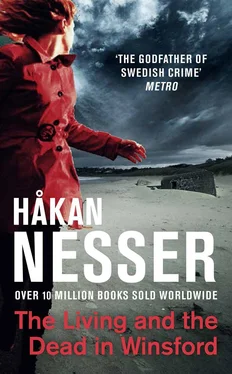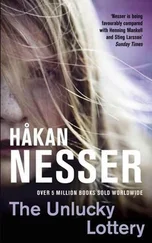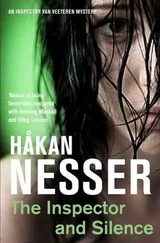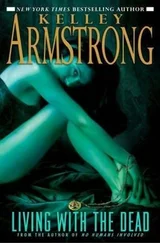Håkan Nesser - The Living and the Dead in Winsford
Здесь есть возможность читать онлайн «Håkan Nesser - The Living and the Dead in Winsford» весь текст электронной книги совершенно бесплатно (целиком полную версию без сокращений). В некоторых случаях можно слушать аудио, скачать через торрент в формате fb2 и присутствует краткое содержание. Год выпуска: 2013, Издательство: Mantle, Жанр: Криминальный детектив, на английском языке. Описание произведения, (предисловие) а так же отзывы посетителей доступны на портале библиотеки ЛибКат.
- Название:The Living and the Dead in Winsford
- Автор:
- Издательство:Mantle
- Жанр:
- Год:2013
- ISBN:нет данных
- Рейтинг книги:4 / 5. Голосов: 1
-
Избранное:Добавить в избранное
- Отзывы:
-
Ваша оценка:
- 80
- 1
- 2
- 3
- 4
- 5
The Living and the Dead in Winsford: краткое содержание, описание и аннотация
Предлагаем к чтению аннотацию, описание, краткое содержание или предисловие (зависит от того, что написал сам автор книги «The Living and the Dead in Winsford»). Если вы не нашли необходимую информацию о книге — напишите в комментариях, мы постараемся отыскать её.
The Living and the Dead in Winsford — читать онлайн бесплатно полную книгу (весь текст) целиком
Ниже представлен текст книги, разбитый по страницам. Система сохранения места последней прочитанной страницы, позволяет с удобством читать онлайн бесплатно книгу «The Living and the Dead in Winsford», без необходимости каждый раз заново искать на чём Вы остановились. Поставьте закладку, и сможете в любой момент перейти на страницу, на которой закончили чтение.
Интервал:
Закладка:
‘Are you saying that he did, in fact, come back?’ I asked, wondering if I had misunderstood what my colleague had said briefly before the programme.
Alice sat up straight on the sofa and suddenly stared directly at the nearest camera — instead of looking at the person she was talking to, as we had instructed her beforehand, like we did with all our guests.
‘Oh yes, he came back all right,’ she said again. ‘And he’s been lying out there in the woodshed ever since.’
For some reason it never occurred to anybody to stop the broadcast.
‘Why is he lying in the woodshed?’ asked my colleague.
‘I killed him with the sledge hammer,’ said Alice with something reminiscent of triumph in her voice. ‘Then I dragged him into the woodshed and covered him in firewood. I haven’t seen him since then. I always fill up with more firewood before he appears.’
Now I realized the seriousness of the situation. Time to cut. I signalled that we would go over to Camera 3 and begin to round off the programme.
‘He was an evil person,’ our guest from Norrland managed to get in. ‘But it’s statute-barred now, I can’t be prosecuted!’
*
There was quite a hullabaloo after we managed to stop broadcasting — but before that, the very first few seconds, a deathly silence. Everybody was staring at Alice, and it wasn’t hard to imagine what was buzzing round in everybody’s head.
What exactly had she said?
She had killed her husband.
She had put him in the woodshed and left him there for twenty-five years. And reported him missing.
She had confessed to murder on a live television programme.
Or else she was a madwoman who had succeeded in creating a sensation. How come the programme research hadn’t discovered something odd was going on, incidentally?
But then everybody started talking at once. Various studio officials came running up, and the police officer made a call on his mobile. The only person who remained calm in her place on the sofa was Alice. Sitting up straight, with her hands clasped on her knee, she contemplated the chaos on all sides with a slight smile on her lips. Order was restored when the programme’s producer came in and announced that we would all assemble in his office for a brief discussion.
The woodshed in question — located on the edge of the village of Sorsele in southern Lappland — was examined by the police the following day. When they dragged out the skeleton of Ragnar Myrman, they tried to keep all the journalists and photographers and nosy parkers at a distance, but there was no chance of that. There were too many of them — a hundred or so — and in the coming weeks Alice Myrman received as much attention in the media as she had evidently aspired to. After interrogating her, the police released her without charges or conditions because, as she had rightly said during her momentous television appearance, the crime was so far in the past that under Swedish law it was now statute-barred.
I met her once again, purely by chance. She was standing in Sergels Torg, Stockholm, handing out leaflets for a Christian organization — The Pure Life. I couldn’t resist asking her how things were going for her nowadays: it was three or four years since that memorable evening in the Monkeyhouse.
‘I’ve moved on,’ Alice explained. ‘I think you should do so as well. Take this — we have a meeting this evening in the City Church.’
She handed me a leaflet, and said that she’d been living in Stockholm for about a year now. She had become too much of a celebrity to stay on in Sorsele, she maintained, and since she had met Jesus — and the pastor in charge of the organization, to whom she was now married — her life had taken on a deeper meaning.
She thanked me from the bottom of her heart for allowing her to take part in that television programme. If she hadn’t had the opportunity to tell all and sundry the truth about what had happened to Ragnar, this miracle would never have taken place.
‘Never give up,’ was the last thing she said to me. ‘When things are at their worst and you are walking through the valley of the shadow of death, He is with you, and He will comfort you.’
Her eyes were blazing. I have often thought about her. Especially lately, this last month, since we were walking into the wind on that Baltic beach in Poland and my life branched off in a new direction.
About what it must feel like behind blazing eyes like those.
How she must have felt as she sat there on the television sofa, waiting for her turn to speak.
20
The ninth of November. Ten degrees at half past eight. Grey and misty when we went for our morning walk, but an hour later the sun had broken through. Nevertheless I’ve decided to stay here working until noon, and then we’ll go for a walk by the sea if the weather holds.
When I write ‘working’, what I mean is reading the material from Samos and Morocco. I have the feeling that we really must make progress with that: I don’t know where that feeling comes from, but perhaps it’s just a little splinter under a fingernail that one has to get rid of. I’ve been reading so much Dickens these last couple of days that he can wait his turn now. I’ve put the packs of playing cards back in the drawer where I found them.
So I made another cup of coffee and sat down by the window with the diary from that first summer on Samos. Bit the head off every feeling of doubt and uncertainty, and started reading. Make decisions and stick to them. . When Eugen Bergman gets in touch it will be as well if Martin has at least some idea of what he’s been doing.
Three hours later I’d got as far as 1 August 1977. There is a week left before he is due to return to Sweden, and it’s possible that all kinds of things will happen then. Martin is still writing in his restrained, neutral style — as if he thinks that one day somebody else will read the text, probably a young woman with intellectual ambitions. I can’t help having that impression, nor can I help it that here and there some things that he writes are impossible to understand. But it is only occasional words, nothing of significance for the meaning overall.
The most important thing that happened towards the end of July — and there is no need to read between the lines in order to understand this — is that he pays a visit to the Herold/Hyatt house. It is not just Martin, but the whole of the so-called writers’ collective, and it evidently turns out to be quite an impressive occasion. There are about twenty people present, and they eat a succession of fancy Greek dishes prepared by the staff at the nearby taverna, who also act as waiters and waitresses, at least at the beginning of the festivities. The guests sit at a long table on the terrace with views over the pine-clad hillside and the sea. There is guitar- and bouzouki-playing, singing, poems are read in every language you can think of, animated discussions take place, a manifesto written and masses of wine drunk. ‘Retsina,’ Martin goes out of his way to stress, ‘that’s the only drinkable wine you can get down here.’ He writes that it is absolutely blooming magical, and he’s not referring to the wine. Marijuana is also smoked, but not by Martin.
The reason — if there needed to be a reason — for Herold and Hyatt inviting all the guests to their house is that the first reactions to Bessie’s debut novel have started flowing in. There is still a week or so to go before the book is due to be published in the USA, but her publisher has informal contacts and can already inform Bessie that the reviews are going to be brilliant. Not to say sensational. Tom Herold gives a speech in praise of his young wife, and declares facetiously that a year from now he will be forgotten, but Bessie Hyatt will be as resplendent as a modern-day Pheme on the uppermost pinnacle of Parnassus.
Читать дальшеИнтервал:
Закладка:
Похожие книги на «The Living and the Dead in Winsford»
Представляем Вашему вниманию похожие книги на «The Living and the Dead in Winsford» списком для выбора. Мы отобрали схожую по названию и смыслу литературу в надежде предоставить читателям больше вариантов отыскать новые, интересные, ещё непрочитанные произведения.
Обсуждение, отзывы о книге «The Living and the Dead in Winsford» и просто собственные мнения читателей. Оставьте ваши комментарии, напишите, что Вы думаете о произведении, его смысле или главных героях. Укажите что конкретно понравилось, а что нет, и почему Вы так считаете.












